How we earn our money
We finance our services on how-to-germany.com through affiliate programs.
When a user orders a financial product through our site and their application is approved, we may receive a commission from some providers. It’s important to note that this does not in any way influence our independent ratings and recommendations.
All the products we present on how-to-germany.com are selected for their quality, range of services, and excellent value for money.
Credit Cards With No Foreign Fees
- What they are: Credit, debit, or prepaid cards that waive the usual 1–3% foreign transaction fees for purchases and withdrawals in non-euro currencies.
- Who benefits: Expats, frequent travelers, digital nomads, online shoppers, and anyone making payments outside the Eurozone.
- Free options: Many free credit cards, such as the Barclays Visa, TF Bank Mastercard Gold, and Advanzia No-Fee Mastercard Gold, offer zero foreign transaction fees without annual charges.
- Premium alternatives: Mid-tier and premium cards (e.g., Barclays Platinum Double, Hanseatic GoldCard) combine fee-free spending with travel insurance, rental car coverage, and bonus programs.
- Strong debit cards: Providers like N26, Revolut, and Trade Republic offer modern debit cards with no currency markups, real-time payment control, and no Schufa check.
- Key tips: Always disable dynamic currency conversion (DCC), check ATM terms, and consider combining two cards to balance benefits and minimize fees.
What Makes a Credit Card Truly Fee-Free Abroad?
Credit cards without foreign transaction fees are ideal for anyone who spends money in other currencies — whether while traveling, shopping online, or living abroad. These cards waive the usual 1–3% foreign currency fees on non-euro payments, helping users save significantly over time.
In addition to zero foreign fees, many of these cards offer numerous benefits, including free cash withdrawals, travel insurance, and cashback and bonus programs. While premium options provide the broadest set of features, some free cards also deliver excellent value without monthly or annual charges.
If you’re looking for a credit card in Germany with no foreign currency fees, you’re almost always choosing between Visa and Mastercard. These networks are widely accepted both across Europe and internationally — whether you’re booking hotels, paying in restaurants, or making online payments in international currencies. American Express cards, while offering excellent travel perks and insurance, generally do not waive foreign transaction fees or ATM withdrawal charges. Frequent travelers who want to avoid such fees entirely should opt for a Visa or Mastercard credit card that explicitly offers free payments and cash withdrawals abroad.
Germany also offers a wide range of no-foreign-fee credit cards without annual fees. Comparing free credit cards is essential if you want to avoid unnecessary charges and find the right fit for your needs.
Attractive free cards include the Barclays Visa Card, the TF Bank Mastercard Gold, and the Advanzia Bank Mastercard Gold. These free credit cards offer no annual fees and support international payments without conversion charges. Cash withdrawals are also free of cost.
Premium and mid-tier cards, such as the Barclays Platinum Double or the Hanseatic Bank Gold Card, offer fee-free spending and broader benefits. These include foreign health insurance and a comprehensive insurance package that covers trip cancellations, lost baggage, flight delays, and sometimes also rental car liability. However, free cards, such as the TF Bank and Advanzia Bank Gold Cards, may also provide comprehensive travel insurance. For frequent travelers or expats, are all these cards a strong everyday option.
Types of No-Foreign-Fee Cards in Germany
Germany offers several types of cards that waive foreign currency charges. Each type has its pros and cons:
- Charge cards
Offer short-term credit with full monthly repayment. As long as you pay your credit card bills on time, you can use these cards as an interest-free payment method. Some credit card providers offer extended payment terms of more than 30 days. However, most charge cards — such as the American Express credit cards — charge fees for international use. - Revolving credit cards
Allow users to borrow money flexibly and repay in monthly installments. These cards are suitable for users who may not pay off the full balance every month, but they incur interest if they carry a balance. Revolving credit cards offer an interest-free payment period of up to 60 days, depending on the credit card company. If you choose installments, you will pay high interest rates. Most non-foreign-fee cards with a credit line in Germany are revolving cards. - Debit cards
Linked directly to your bank account. All card purchases are deducted immediately via direct debit. Meanwhile, modern debit cards, such as the Trade Republic Visa Debit Card and the premium cards from N26 and Revolut, offer instant payment control, no foreign currency markup, and user-friendly apps. They’re a strong alternative to a genuine credit card for expats and digital nomads — especially for newcomers with little or no credit history in Germany, as they often do not require a Schufa credit check. - Prepaid cards
Must be topped up with credit before use. You can obtain a prepaid credit card without being tied to a specific checking account and without a credit check. However, these cards play only a minor role on the German market. An example of a prepaid card without foreign fees is the PayCenter SupremaCard (Mastercard), whose annual fee of €79 is almost at a premium level, without offering additional services in return.
Prepaid cards require users to load funds in advance and rarely waive foreign transaction fees. Many international services — especially online shopping, hotels, or rental cars — do not accept them due to a lack of credit verification. They also offer limited travel benefits and are not ideal for international usage.
Additional Benefits of No-Foreign-Fee Credit Cards
Many German credit cards that waive foreign transaction fees also include valuable extras that enhance convenience, safety, and flexibility while spending abroad.
Typical additional features include:
- Free cash withdrawals worldwide (partially with limits or a defined regional coverage)
- Travel insurance (medical, cancellation, baggage, flight delays)
- Rental car insurance
- Extended warranties and purchase protection
- Programs to collect bonus points or cashback
- Apple Pay and Google Pay compatibility
- Contactless payments via NFC
- Real-time spending notifications via app
- No credit history required (for various debit cards)
Most providers also offer free customer service, available 24/7 via phone or app — a convenient perk when traveling abroad.
What Are Foreign Transaction Fees?
Foreign transaction fees are extra charges applied when you pay in a currency other than euros — for example, when shopping online in USD or dining abroad in GBP. These fees usually consist of two components:
- Foreign currency markup: Most banks add a 1–3% fee to cover the cost of converting foreign currencies into euros.
- Dynamic currency conversion (DCC): At some payment terminals, you’re offered to pay in euros instead of the local currency. While this sounds convenient, it often involves poor exchange rates and hidden fees — making it more expensive than paying in the local currency.
Fee traps to avoid:
- Always choose to pay in the local currency when abroad, not in euros.
- Check your card’s terms for foreign currency markups and cash withdrawal fees.
- Avoid cards that charge both a foreign transaction fee and high ATM fees.
Choosing a card with no foreign transaction fees helps you avoid these extra costs entirely.
Even if your credit card offers free global ATM withdrawals, you may still face unexpected charges abroad — not from credit card issuers, but directly from the ATM operator. In many countries outside the eurozone, ATM providers charge an additional service fee per transaction. These fees are usually shown on the screen before you confirm the withdrawal and cannot be refunded by your credit card company. Additionally, some German cards only offer free cash withdrawals above a minimum amount, such as €100 per transaction. Withdrawing smaller amounts may incur additional fees. Many cards also impose daily or monthly limits on free withdrawals, which, if exceeded, may result in additional charges or transaction blocks. To avoid unpleasant surprises, always check the ATM screen for any displayed fees before completing a withdrawal, and cancel the transaction if necessary.
Best German Credit Cards with No Foreign Fees
Seeking a credit card that allows you to make payments abroad without additional fees? Below are the best options in Germany — from free credit cards and premium travel cards to flexible debit and prepaid solutions. We’ve grouped them by category to help you find the best fit for your travel and spending habits, the right free credit card, as well as premium offers.
Best Free Credit Cards
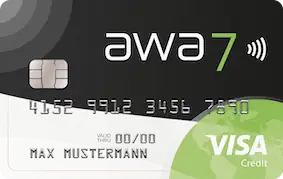
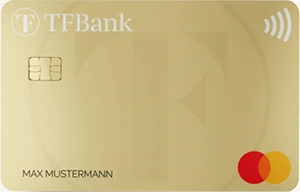
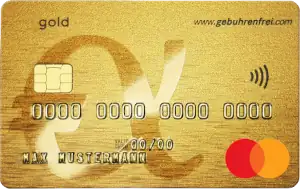
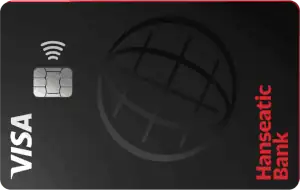
Best Standard & Premium Cards
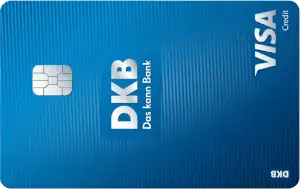
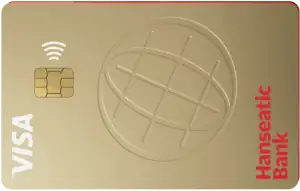
Best Debit & Prepaid Cards
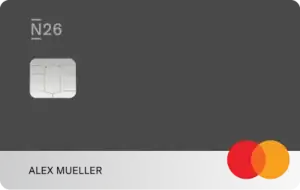
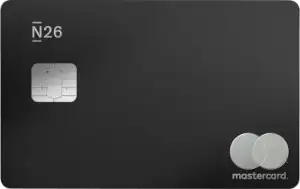
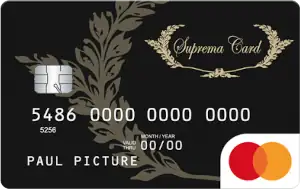
Best Use Cases: Who Benefits Most from No-Foreign-Fee Cards?
Credit cards with no foreign transaction fees are ideal for individuals who frequently make purchases in other currencies — whether for personal, professional, or online transactions. The following groups benefit most:
- Expats: For people living abroad, international purchases and foreign currency transfers are everyday occurrences. A no-foreign-fee card ensures low costs when paying in their home country, as well as when traveling across Europe or internationally.
- Travelers: Whether for vacations or frequent business trips, avoiding unnecessary fees while booking hotels, flights, or withdrawing local currency helps travelers save money.
- Digital nomads: People who work remotely and move from country to country need reliable, cost-effective payment options. These cards offer flexibility and low fees for cross-border spending.
- Remote workers, including international freelancers and employees in remote setups, often receive or spend money in multiple currencies. A fee-free card simplifies payments without incurring extra charges.
- Online shoppers: If you frequently shop from international stores outside the eurozone, you can avoid the typical 1–3% markup on currency conversions with a no-foreign-fee card.
What to Watch Out For
Despite the appeal of zero foreign transaction fees, there are still potential drawbacks and hidden costs to be aware of:
- ATM withdrawal fees
- Interest rates of revolving credit cards
- Insurance conditions (e.g., coverage limits, the trip has to be paid with this credit card — always check the fine print)
- Hidden costs (e.g., minimum withdrawal amounts, exchange rate markups, monthly fees, or charges for paper credit card statements)
A card is only truly cost-effective if all conditions match your spending habits.
When paying abroad, always choose to be charged in the local currency — not in euros. This helps you avoid dynamic currency conversion (DCC), which often comes with poor exchange rates and hidden fees. Disable DCC where possible, and verify your banking app’s currency settings to ensure accuracy. For better control, use cards with real-time notifications and set spending limits before your trip.
The same applies to online purchases in foreign currencies. Always opt to pay in the seller’s local currency — whether you’re shopping from the UK, the US, or other non-Euro countries. Many online shops also use DCC or apply hidden markups if you select payment in euros.
Conclusion – Are No-Foreign-Fee Credit Cards in Germany Worth It?
Absolutely. If you regularly travel, shop online in foreign currencies, or live abroad, selecting a credit card that doesn’t charge foreign transaction fees can save you a substantial amount of money over time. These cards help you avoid the typical 1–3% surcharges on international purchases and withdrawals, while often offering valuable extras such as insurance, cash back, or bonus programs.
Whether you prefer a free card, such as the Barclays Visa or TF Bank Mastercard Gold, or opt for a premium card with added perks, like the Barclays Platinum Double, the key is to match your choice to your needs. Digital nomads and expats may benefit most from flexible debit cards, such as N26, Revolut, or Trade Republic — especially when a credit history is not available.
Since many credit card providers offer competitive options, a detailed credit card comparison is highly recommended before making a final choice.
Compare features carefully, watch out for hidden ATM or interest charges, and consider combining 2 cards for maximum benefit. With the right setup, you can enjoy global payments with zero foreign fees and financial transparency.
Frequently Asked Questions — FAQ
Applying for a credit card in Germany is typically a fast and fully digital process. Most providers offer an online application form, where you’ll be asked to enter personal details such as your name, address, income, and residency status. You will have to pass an identity verification — regularly via VideoIdent — and, depending on the card type, a Schufa credit check.
Once your application is approved, the card will be sent to you by post. Before using it, you must complete the credit card activation — usually by confirming a code sent via SMS or email or by activating the card within your banking app. Only then can you start making secure payments at home and abroad.
The Schufa is Germany’s leading credit bureau. It plays a key role when you apply for a credit card, as banks use your credit rating to assess how trustworthy you are as a borrower. Your Schufa record includes past financial behavior, such as loans, mobile contracts, or missed payments.
A good credit score improves your chances of getting approved and securing a higher credit limit. If you’re new to Germany and don’t yet have a Schufa record, you may initially be limited to debit or prepaid cards. Over time, building a positive credit history through regular, responsible use of financial products can help you access more attractive credit card options.
Yes, absolutely. These credit cards are ideal for online purchases in non-Euro currencies. They automatically convert the price using the current exchange rate, and with no foreign transaction fee, you save up to 3% per purchase. This makes them especially useful for online purchases on international shopping platforms.
Most cards from major banks and fintechs support online payments, NFC, and mobile wallets, such as Apple Pay and Google Pay. That means you can pay contactlessly with your phone or smartwatch while traveling, just like you would at home. Mobile payments are encrypted and secure, and they’re widely accepted across Europe and beyond.
Yes, many no-foreign-fee credit cards allow you to withdraw money at international ATMs without additional charges. However, conditions vary: some providers offer unlimited free withdrawals abroad, while others limit the number of free transactions per month or require a minimum withdrawal amount (e.g., €50 or €100).
Furthermore, be aware that some ATM operators may charge their fees, which your bank cannot refund. Additionally, some cards offer free cash withdrawals abroad, but not necessarily within Germany or the Eurozone; therefore, always check whether domestic ATM use is also covered.
Not necessarily. Many revolving credit cards in Germany come with an interest-free payment term, typically ranging from 30 to 60 days. If you pay your full statement balance within that time, you won’t pay interest at all. However, if you choose to repay in monthly installments or miss a due date, your provider will charge interest, sometimes at rates exceeding 20% annually. Always check the terms of your credit card to understand when interest applies and how to avoid it.